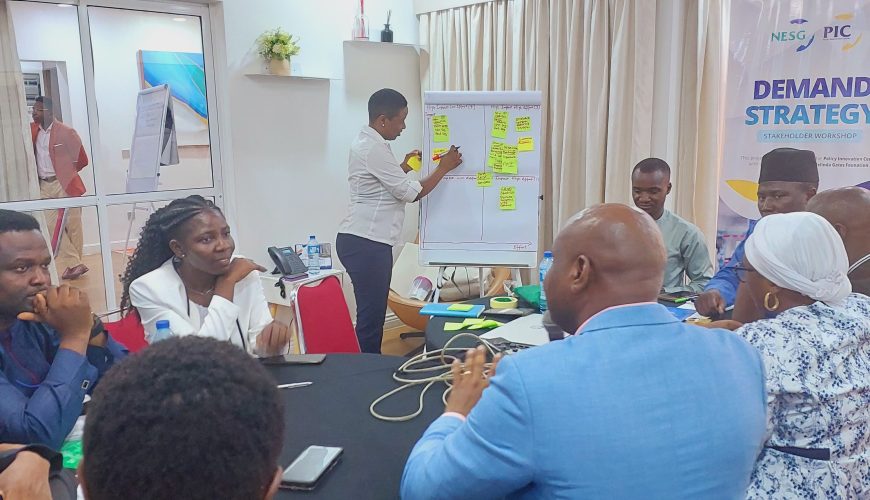In March, stakeholders from various sectors converged in Abuja, Nigeria, for the Demand Strategy Stakeholder workshop organized by the Policy Innovation Center (PIC). The workshop, a beacon of collaboration and innovation, aimed to explore avenues for leveraging technology to enhance farmers’ productivity, particularly focusing on youth and women’s inclusion in agribusiness activities.
The discussions reflected a shared commitment to identifying suitable technologies to bolster agricultural output. Stakeholders delved into the current landscape of technology mobilization, uptake, and adoption by farmers. Each participant provided insights into their organization’s endeavours to ensure farmers have access to diverse technologies. Simultaneously, they candidly addressed the limitations and challenges hindering technology adoption in the agricultural sector.
The workshop’s outcomes bode well for the future of agricultural development in Nigeria. The collective insights garnered from the discussions will inform evidence-based strategies tailored to address the distinct technological needs of farmers. Initiatives promoting women’s and youth participation in agribusiness will be prioritized to bridge existing gaps in access and uptake of technologies. Additionally, the outcomes will pave the way for creating an enabling policy environment conducive to targeted demand-related intervention programs, with the support of the Bill & Melinda Gates Foundation.
At the workshop, a subsequent meeting took place with Dr Mary Jimoh, the representative of PIC. In this session, the focus shifted to the Technologies for African Agricultural Transformation (TAAT) and its pivotal role in empowering farmers. Emphasis was placed on TAAT’s advocacy efforts—particularly in facilitating farmers’ access to technologies—and capacity-building activities to promote youth and women’s inclusion in agribusiness. Notably, TAAT Representative Grace Olapeju led a breakout session addressing the challenge of ensuring that technology and modern solutions provided by participating organizations reach the target farmers effectively. Discussions revolved around recommending policies and plans for government implementation to overcome barriers hindering technology uptake among farmers.
Jimoh expressed eagerness to further explore TAAT activities, recognizing their potential to provide valuable insights into farmers’ technology adoption and identify areas for improvement. This commitment underscores stakeholders’ collaborative spirit and collective determination to drive transformative change in Nigeria’s agricultural landscape. Through sustained efforts and innovative approaches, we aim to propel agricultural productivity, promote inclusivity, and foster sustainable development for all stakeholders involved.

